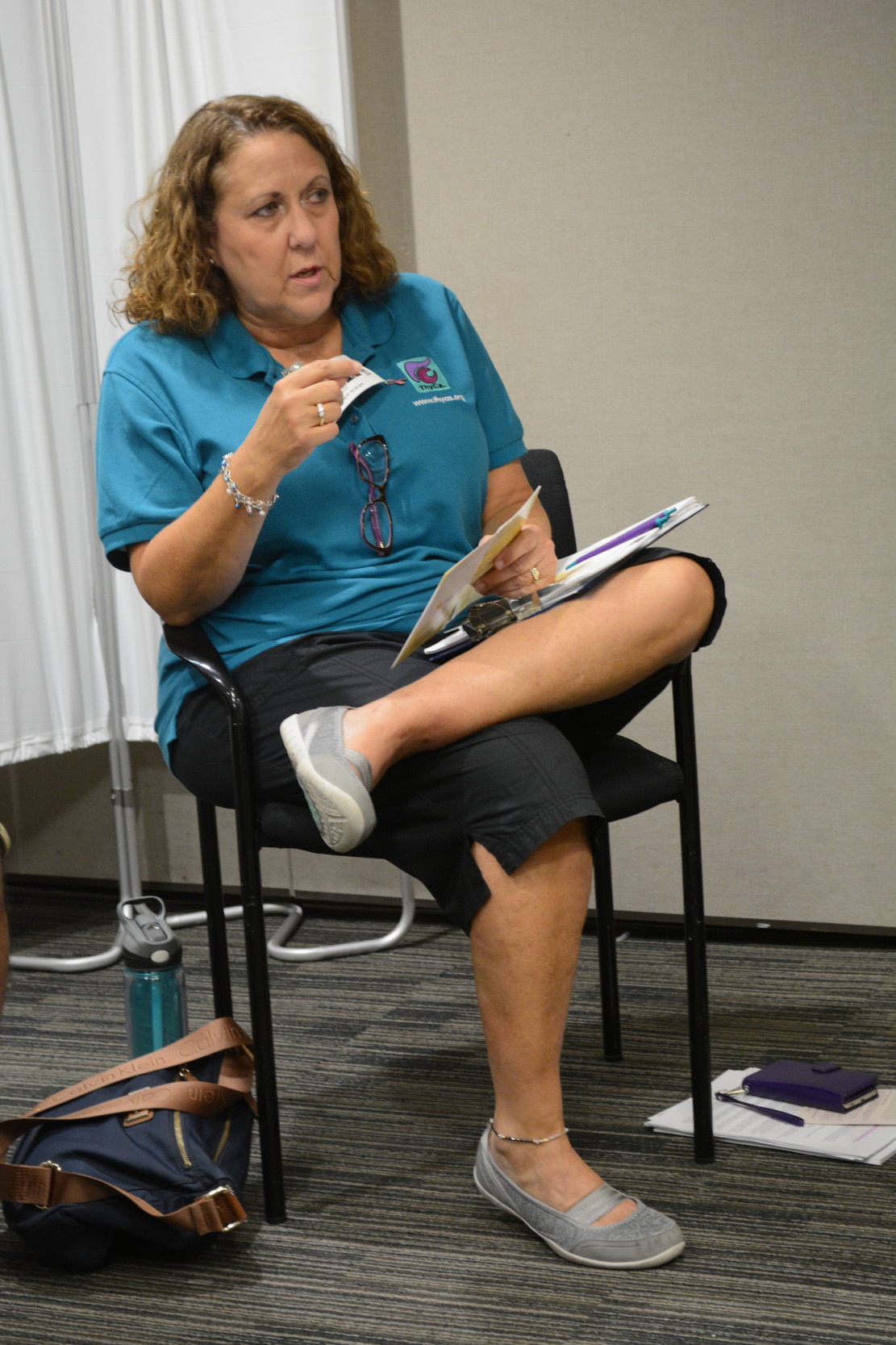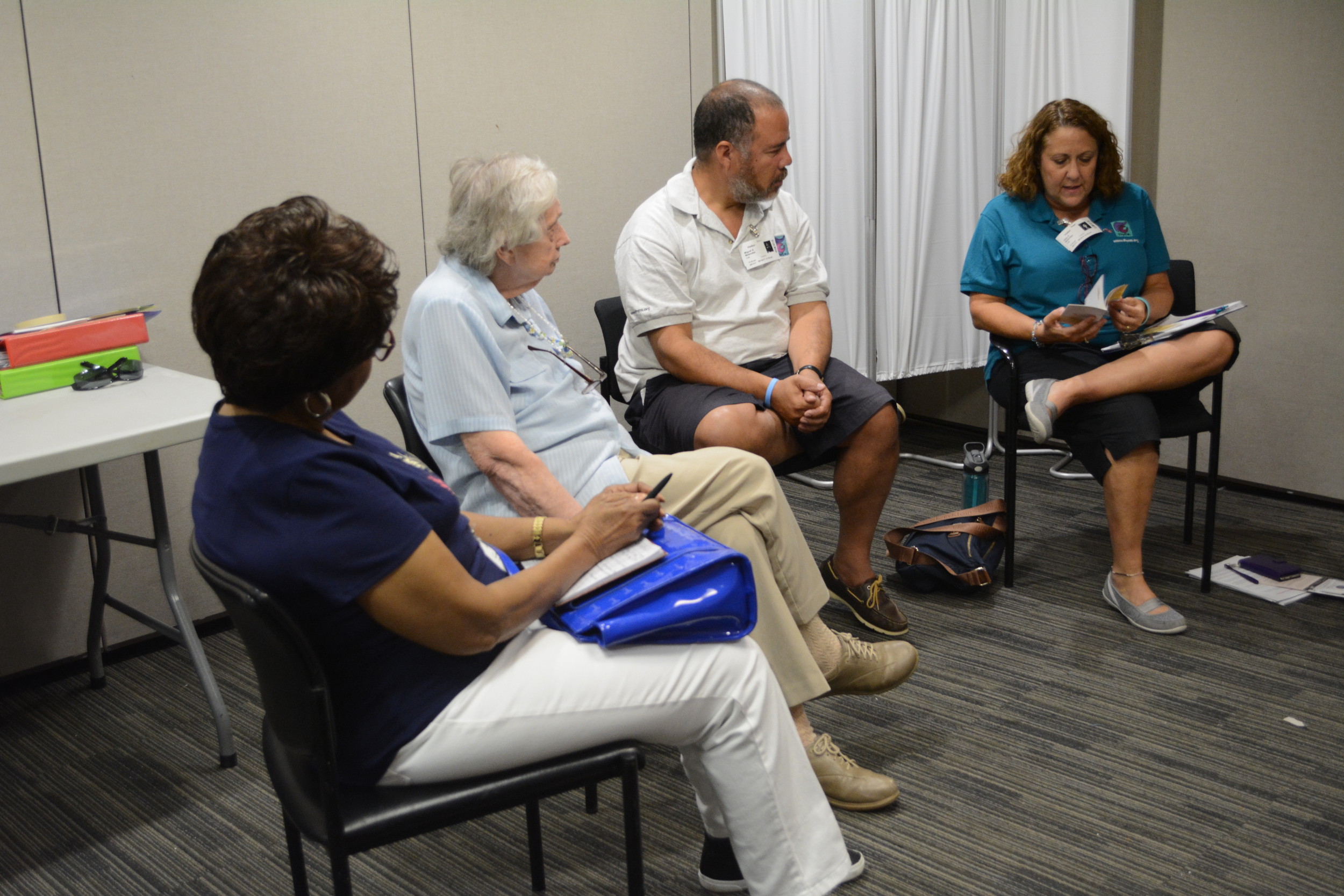Cancer survivor gives back
Baldwinite organizes support group
For a decade and a half, thyroid cancer survivor Abby Melendez, of Baldwin, has run a support group for people with the disease. Since the group began, more than 100 people have come to through it, seeking the understanding, consolation and validation that come only from shared experiences.
Melendez, 58, was diagnosed with thyroid cancer in 1998, and four years later, when she understood how few programs there were for thyroid cancer patients, she decided to act. “For the last 15 years, my husband, Miguel, and I have been facilitating ThyCa Long Island, which is a support group for thyroid cancer survivors,” she said.
Even though Melendez has been in remission since 2001, she has continued the group that she started. It’s affiliated with ThyCa: The Thyroid Cancer Survivors’ Association Inc., a non-profit organization that aids cancer survivors, their family members and health care professionals, and holds monthly meetings at Northwell Health’s North Shore University Hospital .in Manhasset.
According to Melendez, thyroid cancer is often misrepresented as the “good cancer,” because it is easier to treat than many other forms of the disease. The five-year survival rate for thyroid cancer is 98 percent, according to the National Cancer Institute. By contrast, the five-year breast cancer survival rate is 89 percent; kidney cancer, 74 percent; colon cancer, 64 percent; lung cancer, 18 percent; and pancreatic cancer, 8.2 percent.
Roughly 14 people in 100,000 are diagnosed with thyroid cancer annually.
Because it more often responds to treatment, it does not receive the attention that it needs, Melendez said.
“I think it’s helpful,” said Lia Papacosta, a newcomer to Melendez’s support group. “I was a little nervous coming into it, but it definitely is helpful to hear from other people.”
Papacosta said that having a group of empathetic people who are enduring the same trials that she is makes a big difference. “If I end up not liking my endocrinologist, it’s OK,” she said. “I have a bunch of people I can say, ‘Hey, do you like yours? What’s your endocrinologist’s name?’ So it definitely has been helpful, almost therapeutic.”
Melendez recalled the circumstances that led her to form the group, when she was struggling with the uncertainty of her cancer diagnosis. “I was doing so poorly, just emotionally trying to deal with recovering from surgery, and getting regulated on medication,” she said. “It’s like you have your surgery, you have your medication, you’re in the clear, and then you’re expected to just go on and live. But just having that diagnosis screws you up a whole lot.”
Her surgeon suggested an online support group, which helped her navigate the often overwhelming situations cancer patients must endure. Through the group, she realized just how important it is to have support.
She said her doctor helped her with the medical side of the disease, but having other people share similar experiences with her felt validating, and helped her through one of the toughest times in her life emotionally.
“In most hospitals, there are support groups for breast cancer, colon cancer, prostate cancer, but not support groups for thyroid cancer,” Miguel Menendez said.
With cancer in general, but thyroid cancer specifically, “everybody’s journey is different, and the people that come to our group fluctuate month to month, because sometimes people don’t feel like they need to come for support, but sometimes they want to come and share,” he said.
“It helps me just hearing other people’s stories,” group member Jane Adams said. “You kind of learn more about your own disease.
“I think this group is more informative than a doctor,” she added, “because [a doctor is] trained to treat a disease, not a life, not the whole person,” she continued.
For more information on thyroid cancer and its treatment, visit www.thyca.org.

 39.0°,
Fair
39.0°,
Fair 







